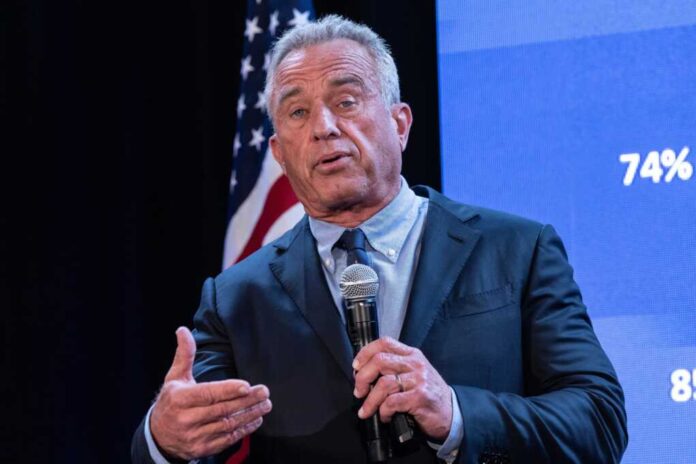
The CDC’s new vaccine advisory panel, under Robert F. Kennedy Jr., is raising alarms about potential policy shifts that could undermine vaccine trust.
Story Overview
- The CDC’s new ACIP, led by vaccine skeptic Robert F. Kennedy Jr., is set to review vaccine safety.
- Upcoming discussions may focus on alleged links between vaccines and rare adverse events in children.
- The panel’s controversial new composition could reshape national vaccine policies.
- Public health experts express concern over the transparency and direction of these reviews.
CDC’s New Direction Under Scrutiny
The CDC Advisory Committee on Immunization Practices (ACIP) is set to meet on September 18-19, 2025, to delve into vaccine safety issues, including potential links between vaccines and adverse effects in children. This marks a significant shift in focus under the leadership of Health and Human Services Secretary Robert F. Kennedy Jr., a known vaccine skeptic. The reconstituted panel, reduced from 17 to 7 members, is expected to scrutinize vaccines like COVID-19 and hepatitis B, potentially influencing future policy directions.
The panel was reformed in June 2025, with all previous members dismissed. Its first meeting in June focused on influenza and RSV vaccines, controversially voting to remove thimerosal from flu shots despite scientific consensus on its safety. The agenda for the upcoming meeting remains vague, raising concerns about transparency among public health experts. There are reports that the committee may discuss 25 pediatric deaths recorded in a vaccine safety database, though these reports have not been conclusively linked to vaccines.
F.D.A. Reviews Reports of Covid Vaccine Deaths – https://t.co/vvWK1PexYF pic.twitter.com/rAVOajxtBI
— bioethics.com (@bioethicsdotcom) September 12, 2025
Potential Policy Changes and Their Implications
As the meeting approaches, the implications of any potential policy changes loom large. In August, the FDA restricted COVID-19 vaccine eligibility to those over 65 or at high risk. Should the ACIP further restrict vaccine recommendations, especially for children, it could significantly impact public health policy and trust. The American Academy of Pediatrics (AAP) has already voiced strong opposition to these restrictions, warning that they could jeopardize children’s health and access to essential immunizations.
The broader implications of these developments are concerning. Any changes in vaccine recommendations could lead to increased costs due to preventable diseases, heightened public hesitancy, and new political debates over public health authority. Experts warn that undermining vaccine trust could reverse decades of progress in disease prevention.
Watch:
Expert Opinions and Concerns
Public health experts have expressed deep concerns about the ACIP’s new direction. Andrew Pavia from the Infectious Diseases Society of America cautioned that the new panel’s approach might signal further restrictions based on unverified safety fears. Despite the skepticism, the mainstream scientific community continues to emphasize the overwhelming evidence supporting vaccine safety.
As the ACIP prepares to meet, the stakes are high for public health, trust in vaccines, and the potential reshaping of national immunization policies. The outcome of these discussions will not only affect immediate vaccine access but could also influence the long-term public perception of vaccine safety and efficacy.
Sources:
BioPharma Dive
Nature
Georgetown University Center for Children and Families (Say Ahhh)
Georgetown University Center for Children and Families (Policy Analysis)


















